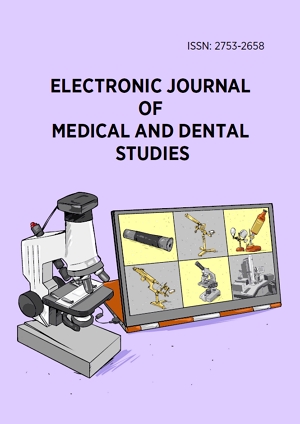Abstract
Background: It is vital to evaluate men’s knowledge, perception, and screening practices regarding prostate cancer to facilitate the design of the appropriate intervention.
Methods: This study employed a descriptive cross-sectional design. A multi-stage sampling technique was utilized to select 380 participants. A validated semi-structured questionnaire with a Cronbach’s alpha score of 0.62 was used to collect information about knowledge regarding prostate cancer, perceived susceptibility, and seriousness, perceived benefits, and barriers to prevention and prevention practices. Data were analyzed using SPSS version 23 to generate mean and standard deviation while Chi-square and Pearson’s correlation was used to determine the relationship among variables at 0.05 level of significance.
Results: The mean age of participants was 43.46±11.73 years. The majority (73.2%) of the respondents had poor knowledge regarding prostate cancer. Less than half (34.5%) of the respondents perceived themselves to be susceptible to prostate cancer. Most (75.5%) of the respondents perceived prostate cancer to be serious. Less than half (34.5%) of the respondents perceived themselves to be susceptible to prostate cancer. Few (23.4%) of the respondents had performed a prostate examination. There was a significant relationship between respondents’ level of knowledge and screening for prostate cancer (X2=11.94, p=0.0039). There was a significant relationship between respondents’ level of knowledge and their perception of prostate cancer (r=0.34, p=0.0001).
Conclusions: The participants had poor knowledge regarding prostate cancer, moderate perception, and low screening practices. To improve screening practice there is a need to design health education interventions to increase knowledge and correct perception among men.
Keywords
License
This is an open access article distributed under the Creative Commons Attribution License which permits unrestricted use, distribution, and reproduction in any medium, provided the original work is properly cited.
Article Type: Original Article
ELECTR J MED DENT STUD, Volume 12, Issue 1, March 2022, Article No: em0096
https://doi.org/10.29333/ejmds/11972
Publication date: 06 Apr 2022
Article Views: 2011
Article Downloads: 2411
Open Access References How to cite this article
 Full Text (PDF)
Full Text (PDF)